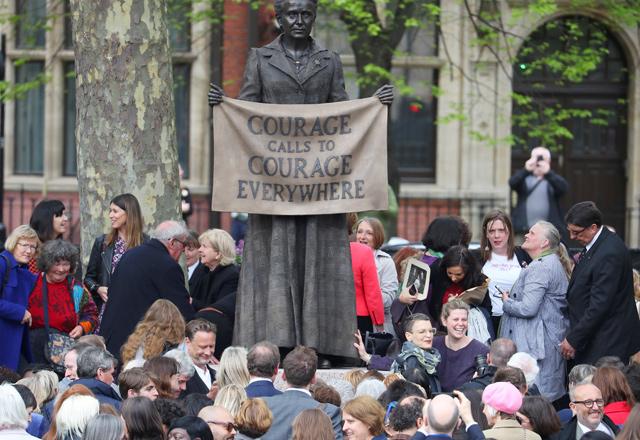You are here
Russia, Philippines have most female business leaders, Japan ranks lowest
By Thomson Reuters Foundation - Mar 08,2016 - Last updated at Mar 08,2016
LONDON — With 45 per cent of senior management positions held by women, Russia has once again topped a ranking of countries with the highest per centage of women in senior business roles, followed by the Philippines and Lithuania, a report published on Tuesday said.
Japan, where only 7 per cent of senior leadership roles are held by women, remained at the bottom of the list. Germany and India ranked slightly higher, with 15 per cent and 16 per cent of women in senior management, respectively.
Globally, only a quarter of senior management positions are held by women, up from 22 per cent a year before, according to "Women in Business" published by the US-based audit and tax firm Grant Thornton.
The number of businesses with no women in senior management has increased to 33 per cent from 32 per cent in 2015, the report, which surveyed 5,520 businesses in 36 countries, indicated.
"Companies across developed nations have talked the talk on diversity in leadership for long enough," Francesca Lagerberg, global leader for tax services at Grant Thornton International said in a statement. "It's time to put their promises into practice and deliver results."
With more than a third of senior roles in the region held by women, eastern European countries, among them Estonia, Latvia and Poland, topped the diversity rankings.
Meanwhile, 39 per cent of businesses in Group of 7 countries (Canada, Germany, Italy, France, Japan, Britain and the United States) had no women in senior management positions.
"Despite considerable efforts by governments and campaigners across the world's best-developed economies to ensure best practice they continue to lag behind emerging markets in [the diversity] area," Lagerberg said.
"This poor performance seems to be at least partly a result of entrenched societal norms. In the UK and US in particular, there are still plentiful examples of a 'command and control' approach to leadership which is not necessarily attractive to women," she added.
Eastern European countries owed some of their diversity to the legacy of the communism and its principles on equality, the report concluded.
Separately, a survey published on Tuesday indicated that if you're a new mother in Britain returning to work after having a baby, almost half of your colleagues will think that you've become less committed to your job.
However, if you're a new father, a baby comes with a bonus, as many of your peers will likely think your commitment to work has actually increased, said the poll by the Fawcett Society, a campaign group promoting women's rights in the labour market.
The news gets even worse for women who become mothers before the age of 33, who, according to analysis by the Trades Union Congress, Britain's largest union group — earn 15 per cent less than their female colleagues who haven't had children.
"The motherhood penalty and daddy bonus are still a strong feature of our workplaces," Sam Smethers, Fawcett Society's chief executive, said in a statement. "This drives inequality and forces women and men into traditional male breadwinner, female carer roles."
According to the Fawcett Society survey, 46 per cent of people in Britain believe women become less committed to their job after having a baby, compared to 11 per cent who think the same is true for men.
Meanwhile, 29 per cent of people believe new fathers become more committed to work, compared to just 8 per cent who believe new mothers become more committed.
The poll showed discrepancies in how men and women see their share of childcare, with men almost twice as likely as women to believe that tasks such as making sure children do their homework or washing children's clothes were shared equally.
"The lack of flexibility and pressure on dads at work means women are still doing the bulk of the caring and the work around childcare," Smethers said. "[...] until we start to see a more equal sharing of care we won't achieve equality at work and we won't close the pay gap".
The survey also showed that both men and women lie to their bosses in order to spend time caring for their children.
Four in 10 fathers said they were not getting enough leave time to care for their children and 38 per cent said they resorted to lying to their bosses in order to spend time with their kids, compared to 28 per cent of women who said they lied.
Related Articles
LONDON — The first statue of a woman in London's Parliament Square was unveiled on Tuesday to celebrate the 100th anniversary of women winni
AMMAN — The Amman Stock Exchange (ASE), along with local and international partners on Monday, joined global stock exchanges to "Ring the Be
LONDON — Britain's small listed companies are lagging behind their biggest counterparts when it comes to appointing female board members, a


















